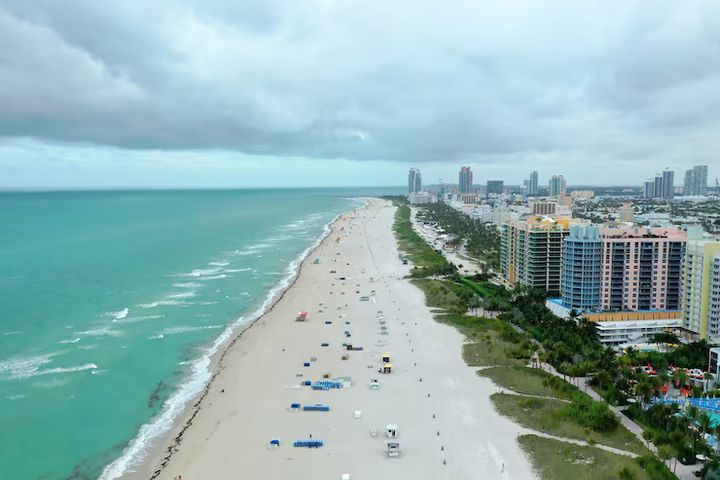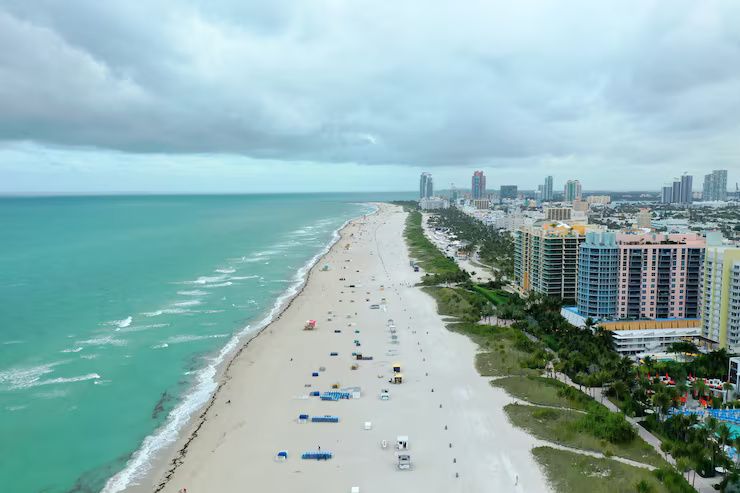
A Complete Guide to Beach Property Investments on Mexico’s Pacific Coast
Pacific Coast of Mexico has long been a destination for tourists and migrants ready for their wonderful coast, lively culture and comfortable lifestyle. This interest has created a strong and dynamic real estate market, especially for the assets of the beach. From popular tourist hubs to quiet, more withdrawn societies, the region offers different investment opportunities. This article acts as a comprehensive guide to those who are considering investments in this part of Mexico, which explains important factors and processes involved for foreign buyers.
Investing in beach properties on the Pacific coast of Mexico is an important topic for various reasons. This affects not only individual buyers in search of a holiday home or retirement goal, but also the local economies in the coastal communities. For many people, it gives a chance to own a piece of sky to a potentially more accessible price point than similar markets in the United States or Canada.

Constant demand for holiday prices in the region also makes it an attractive opportunity for investors seeking a source of passive income. A well -managed property in a desirable place can generate important rental income, which can help to offset ownership costs and provide returns to investment. In addition, it addresses many people's desires to diversify the investment departments internationally and secure a second house in one place with its own climate and lifestyle.
Recent updates and market trends
are characterized by the constant development and developed trends for the real estate market on the Pacific coast of Mexico. Last year (from mid -2024), cities such as Sayulita and Punta Mita have been included in areas such as Riviera Nairit. Los Cabos, a long established luxury market, a magnet for high-end buyers remains, although a small recession was mentioned in late 2024, partly because of the limited supply of gang-to-tai-to-taiyar houses.
This has increased interest in building custom houses. Mazatlán and other emerging Pacific coastal sites have also seen an increase in interest, offering low input prices than more installed markets. The overall trend has been a strong post-pandemic extraction in tourism, which in turn has promoted an increase in real estate transactions. It is supported by the influx of foreign investors and migrants in search of a new lifestyle or reliable investment.
Durable and environmentally friendly development is an increasing trend, with increasing number of buyers seeking properties that include green construction practices and are designed to reduce environmental effects. This reflects a major change in responsible tourism and consumer preferences for life.
Understanding Laws and Policies for Foreign Buyers
One of the most critical aspects of buying property in Mexico as a foreigner is understanding the specific laws and regulations that apply. The Mexican Constitution has a long-standing provision that restricts direct foreign ownership of land in the "restricted zone," which is defined as all land within 100 kilometers (about 62 miles) of an international border and 50 kilometers (about 31 miles) from the coastline. Since the entire Pacific Coast falls within this zone, foreigners must use a specific legal structure to own property.
The most common and recommended legal structure for foreigners is a Fideicomiso, or a bank trust. Here’s how it works:
The foreign buyer is the beneficiary of the trust, and as the beneficiary, they have all the rights of ownership.
This includes the right to use, occupy, rent, improve, or sell the property.
The trust is granted for a term of 50 years and is renewable for another 50-year period, allowing for indefinite ownership.
The beneficiary can name heirs to inherit the property, making it a viable option for estate planning.Another option for commercial or business properties is to form a Mexican corporation. This allows a foreign-owned company to hold the title to the property directly. However, this is a more complex process and is typically used for larger investment projects, such as hotels or multi-unit rental developments.
Regardless of the ownership method, all foreign buyers must obtain a permit from the Ministry of Foreign Affairs (Secretaría de Relaciones Exteriores or SRE). This process, along with all legal and financial aspects of the transaction, is overseen by a public notary (Notario Público), a highly trusted legal professional in Mexico who ensures the transaction is compliant with all local laws.
Helpful Tools and Resources
Navigating a foreign real estate market can be challenging, but a variety of tools and resources can simplify the process for investors.
- Real estate agent and notary: It is important to work with a well -known and certified real estate agent who specializes in foreign buyers. They can guide you through the procedure, recommend properties and connect you to other professionals. A public notary is an essential part of the transaction and acts as a state -appointed spokesman who ensures that the sale is legal and the title is ready.
- Property portals: Sites such as point 2 homes, Zillo and various local Mexican real estate sites simplify listing and market data. These platforms can give you an idea of prices, property types and access to homes in different fields.
- Legal lawyer: Attaching an independent lawyer is very appropriate to do the right diligence on property in Mexican property and review all legal documents. It provides an extra layer of protection and security.
- General Calculator: Equipment that helps you estimate the closure costs, annual property taxes and possible rental income can be invaluable. These calculators can be found at many real estate agents. It is important to remember that closure costs including taxes and fees usually range from 4% to 8% of the purchase price.
Frequently asked questions can find a hostage in a foreign Mexico?
Although it is possible for foreigners to receive a hostage in Mexico, it is not common. This process can be complicated with strict requirements and high interest rates than other countries. As a result, most of the foreign buyers buy properties with cash or use financing from their country. What are the specific costs of beach properties?
The ongoing costs include the annual property tax (Predal), which is usually very low in Mexico, often a few hundred US dollars per year. Other costs may include fees for the Union of Homes (HA), a trust fee for Fidicomiso, tools, insurance and property management fees if you plan to rent the house. Is it a good idea to rent my property when I don't use it?
Leasing your property can be a great way to generate income and offset costs. The demand for short -term prices on many Pacific shadows is strong. However, it is important to be aware of taxes on rental income and to use a reliable property management company to be aware of taxes and to handle guest services. What is the most important risk of buying properties in Mexico?
Risk includes legal complications, such as unclear titles or unauthorized construction, and that is why a very diligent process is needed with a notar and lawyer. Other risks include streams, unpredictable costs and a market that may be affected by global economic conditions and travel trends. Choosing a well -known team of local professionals is the best way to reduce these risks. Do I have to be a resident of Mexico to buy property? No, you don't have to be a resident of Mexico to buy properties. You can complete the transaction with tourist visa.
conclusion
For foreigners who are considering investing in beach properties on the Pacific coast of Mexico, it is a feasible market, but also requires careful navigation of local laws and customs. The key to a successful investment lies in understanding Fidicomiso, or Bank Trust, which is the primary legal mechanism for foreign ownership in limited coastal areas. While the market has shown strong growth, especially in areas such as Riviera Kidney and Los Kabos, buyers should be aware of the need for full hard work. It is necessary to link a team of reliable local professionals, including a well -known real estate agent, a public notary and a lawyer, to reduce the risk and ensure a steady transaction. In case of well -informed and collaboration with the right experts, foreign buyers can successfully navigate the process and enjoy the benefits of owning a piece of this desirable coast.










